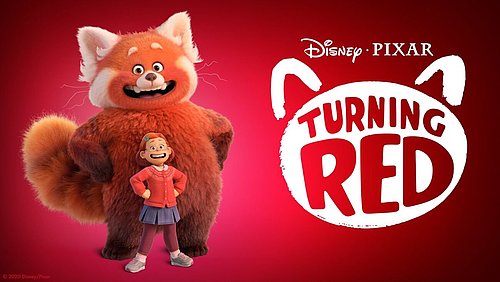
The Future of Music Consumption
Generation Z's Influence on Music Consumption
By
Josh Wickers

Background
The generation known as Gen Z, born from 1997 to 2012 are re-writing the way music is consumed and reshaping the continually evolving landscape of the music industry. Research has revealed that Gen Zs invest more time listening to music than any other generation, spending an extra 40 minutes a day than their counterparts. As the most tech-savvy generation, you won’t be surprised to hear that 93% of Gen Z’s own a smartphone, dedicating 53% of their daily audio consumption to music through these devices. Solidifying the crucial role that music plays in Gen Z's life.
As a Gen Z myself (and someone who loves music), I am part of the first generation to grow up with the internet playing an integral part of my life. I have the unique opportunity to explore new music, embracing diversity across music genres and platforms, and integrate both new and old music options for consumption and discovery. Without the constraint of conventional radio listening I’m able to easily discover new music and curate my own playlists, listening to what I want, when I want. Within this blog I will explore the impact Gen Z has on the future of music consumption, delving into varied musical preferences, streaming patterns, and the consequences that are shaping the soundtrack of our lives.
Streaming Habits
The foundation of Gen Z’s streaming habits lie in the prevalence of streaming services. Our primary method for enjoying music revolves around platforms such as Spotify, Apple Music and, YouTube, which gives us an entirely new dimension of music accessibility in comparison to previous generations. While past generations were confined to digging through crates of vinyl records in record shops (though this practice is seeing a resurgence in recent times), we enjoy an expansive array of music at our fingertips thanks to these platforms, granting us immediate entry to a whole catalogue of music, enabling us to explore and listen to songs from all eras. Engagement with these platforms goes beyond passive listening; playlists are actively curated that resonate with our emotions and stage of life. This curated assortment of music not only reflects our individual tastes but also nurtures shared experiences, providing opportunities to collaborate on playlists with friends and share listening from multiple locations.
Influence on the Music Industry
The music industry has undergone an extreme transformation. The uplift in streaming habits amongst Gen Z has drastically changed how music is released; traditional album sales have witnessed a sharp decline and artists now heavily depend on revenue generated through streaming services. There's a notable shift in the industry's structure, moving away from a top-down hierarchical model to a more democratic one where talent and authenticity hold greater significance than hefty marketing budgets. In response to this change, record labels are adapting by becoming more open to exploring talent and signing musicians who resonate with Gen Z's preferences. This shift recognizes that the conventional parameters of success no longer hold the same relevance in the digital age.
Music Preference
The type of music Gen Z makes and listens to is reflected in their need for artists to be open and honest. Music that resonates with this demographic often features lyrics diving into personal challenges, including issues related to mental health and heartbreak. 56% of young people aged 18-24 believe that music evokes strong emotion, with this same group expressing that music cuts you off from problems and provides support in difficult moments. This shift has been notably influenced by the impact of social media. Platforms such as TikTok have evolved into key tools for discovering new music and propelling musicians into the mainstream spotlight. An example of this is "SkeeYee" by Sexyy Red, which gained viral traction on TikTok before becoming a massive hit on streaming platforms. Although I must say, the lyrics aren’t exactly deep and meaningful.
Taking Control
The growing tendency towards authentic music outside the traditional industry has contributed towards the development of independent musicians within the music scene. This shift empowers artists to take control of their creative processes, adopting a more self-sufficient approach to music creation, enabling direct communication with their audience. The democratisation of music production and distribution, facilitated by platforms like SoundCloud, allows independent and emerging artists to flourish. Engaging in social media and grassroots marketing, many of these indie musicians, who once faced challenges in gaining recognition, have now cultivated devoted fan communities. Consequently, the distinction between indie and mainstream has blurred, as underground and niche genres gather a broader audience within the diverse musical preferences of Gen Z.
Recommendations
In anticipation of the evolving music consumption habits of Gen Alpha, it is essential for independent and signed artists alike to stay on top of emerging trends, be that through leveraging platforms such as TikTok for innovative social media marketing campaigns to spark the new latest dance trend, or employing more traditional advertising techniques, one thing that’s certain is that with the right strategy, success is within reach for anyone in the industry.I’ve compiled together some expert recommendations for aspiring and established music artists, beyond just creating great music, to effectively engage with Gen Z and future generations. After all, you could be the next Taylor Swift or Beyoncé:
- First and foremost, understanding your audience and who listens to your music is fundamental. Your listeners may not belong to your own generation, making it crucial to understand what resonates with them. It is therefore important to talk to them not only into the music they enjoy, but how they consume, discover, and continue to engage with music.
- Once you’ve gained a deep understanding of your audience, it’s time to develop a bullet-proof strategy. If you have been reading carefully, it is clear to see that social media is an incredibly powerful tool. Harnessing its potential provides you the unique opportunity to rise to stardom overnight - a luxury previous generations didn’t have. This can be through launching a well-planned dance challenge, sparking the latest TikTok craze or collaborating with influencers and brands to feature your music in their content.
- Lastly, but by no means least, stay true to yourself and create music you genuinely love. Your passion and authenticity will shine through in your songwriting and passion when promoting your songs. If you don't even like your music, how can you expect others to?
What's Next?
To sum up, the influence of Gen Z on music and streaming services, with our varied preferences and digital proficiency, stands as a key force in reshaping the music industry and how we interact with it. Looking ahead to the future, which will undoubtedly be characterised by rapid technological advancements, we anticipate the integration of AR, AI, enhancements in live performances, and the emergence of novel social media platforms. The music industry must keep up to speed with these changes to meet the needs of Gen Z and maintain innovation amidst evolving trends. So, let the music keep playing, as this generation and the next carve out their own path, one rhythmic step at a time.


